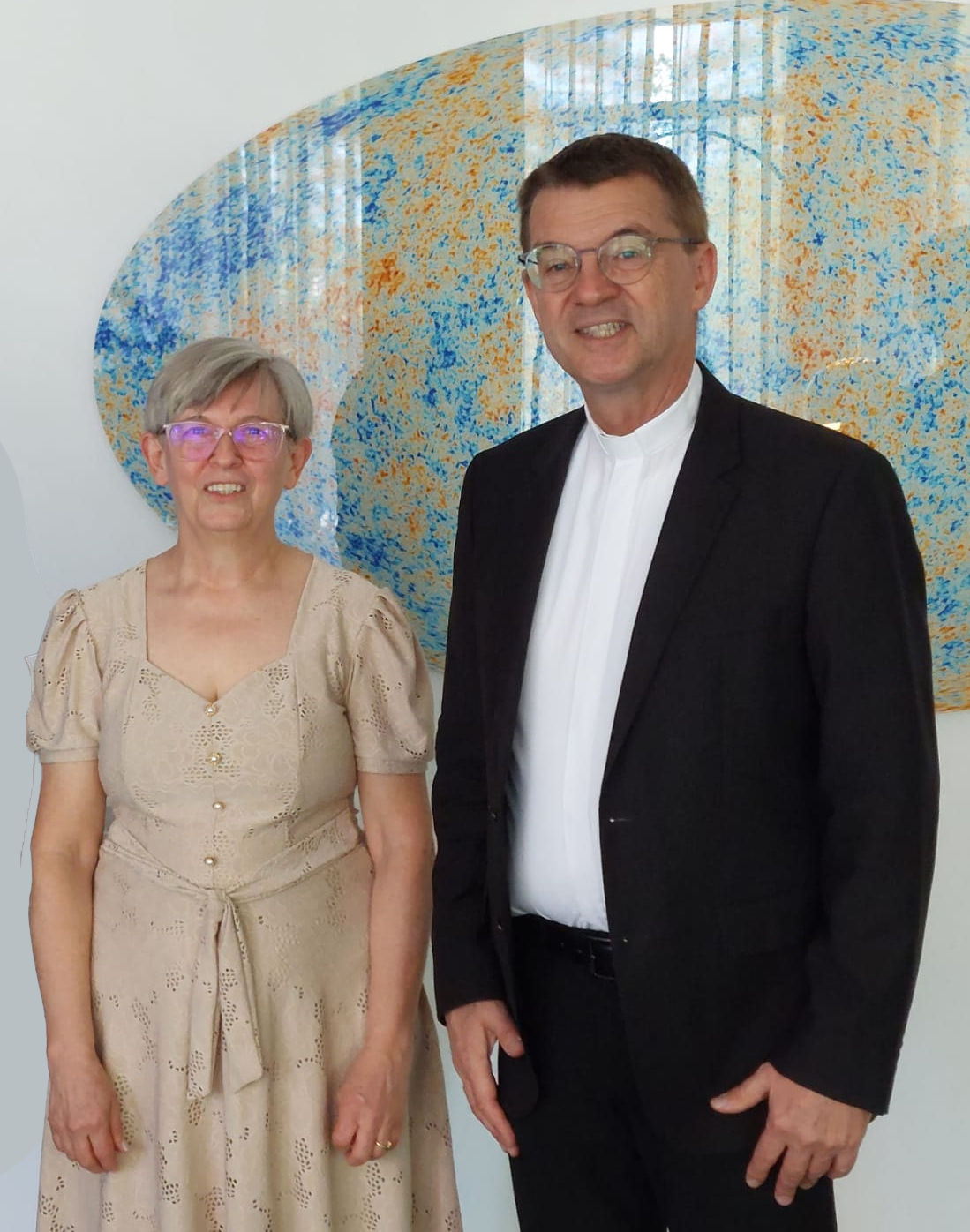Between the days August 21st and September 4th, the director of the Scalabrinian Center for Migration Studies (CSEM), Sr. Marlene Wildner, took a trip to Germany for a series of institutional meetings with long-standing partners, in particular the Diocese of Rottenburg-Stuttgart, They were always mediated by Thomas Broch and Klaus Jürgen Kauss, who, according to the director, are “long-time friends of the CSEM and the Congregation and, above all, great promoters of our ICoMiR (International Conference on Migration and Refuge)”.
Sr. Marlene pointed out that “very significant meetings” took place during the visit. One of the most important was with the new bishop of the diocese, Dr. Klaus Krämer, former president of Missio and Weltkirche.
He characterizes CSEM as an institution that has a large network of collaborators and partners with whom it works and acts. - Sr. Marlene Wildner
During the meeting, the bishop expressed concern about the growth of xenophobic speeches in the country and showed interest in the CSEM being able to contribute to the search for knowledge in order to create actions that counter the mentality “that is growing in Germany of a certain xenophobia, also that concept that migrants and refugees are the cause of the country's problems.”
According to Sr. Marlene, the bishop also presented a concrete proposal:
He proposed at the time that academic days be resumed in the diocese and he proposed that one be held next year, in 2026. And for this day he specifically asked that the CSEM presents its research methodology, but above all the hard core from the perspective of the migrant and refugee as a protagonist and as a subject of dignity.

The director noted that the bishop recognizes the value of CSEM's approach, which “is always a great contribution in the societies where [migrants] live, but also that in their journey they build resilient actions and overcome the difficulties they encounter.” The bishop also suggested strengthening bridges with the German Bishops' Conference.
For the director, the meeting “put CSEM in a very positive position, also to develop activities now based in Europe”.
Dialogue with the Weltkirche department of the Diocese of Rottenburg/Stuttgart and new possibilities for collaboration
After the meeting with the bishop, Sr. Marlene visited the department Weltkirche, where she was also welcomed by his team. According to her, director Dr. Heinz Detlef Stäps highly valued the international conferences and showed interest in participating in ICoMiR 2027, which will be held in Asia.

The dialog focused on how the CSEM can support ecclesial communities in welcoming migrants and refugees. The theme was, once again, that the CSEM is an institution that contributes to reflecting on a methodology for how the diocesan Church can build communities that truly integrate and value the presence of migrants and refugees in local communities, and that is an exchange of experiences.
Recognition and thanks to Bishop Emeritus Gebhard Fürst
On the same days, the director also visited the former bishop of the diocese, Dr. Gebhard Fürst, a central figure in the history of the partnership between CSEM and Germany. “He was the one who actually opened the doors to CSEM in the first projects, in the partnership not only with CSEM, but in the activities around the world, always accompanying us and supporting us.”

She recalled, for example, the bishop's support for events promoting peace: “They have always supported us, for example, also in activities such as the conference for the 10th anniversary of the ceasefire in Angola, Building Peace in Angola, The Diocese of Rottenburg-Stuttgart, at that time via Caritas Angola, was already present and helped to build and maintain the program.”
During the visit, Sr. Marlene got to know the new social housing project of the German Caritas, where the bishop lives. In each building, there is a common space where families can meet once a week to exchange experiences, to talk, to get to know each other.
She highlighted the inclusive nature of the initiative:
There is a defined percentage of low-cost housing, which allows families with a lower income, families who have young children, to have access to these homes at a very low rental cost. While the larger homes, for people with higher incomes, cost more, precisely to support these other low-cost homes.
Marlene noted that “most of the low-income families are migrants and refugees” and that the place promotes “a coexistence of people from very different cultures, very different religions”. The bishop, she said, “even told stories of people he comes into contact with, for example Muslims of other religions, and the dialog he manages to build during these days of encounter.”
Academic partnership and new horizons
Finally, the director met with the Dr. Klaus Kieẞling, professor at the Sankt-Georgen University of Philosophy and Theology in Frankfurt. “He is a very renowned professor in Germany, who has written many works, but who has also done a lot of research at Catholic institutions that fund projects in other countries, such as Kindermissionswerk, Adveniat and others.”
The meeting opened up new possibilities for academic collaboration. The professor expressed interest in participating in joint initiatives with CSEM, especially in research developed at European level, in which he and his students could contribute with analysis and scientific cooperation activities.
Marlene Wildner's visit strengthened CSEM's international presence, renewed bonds of trust with partner institutions in Germany and opened up new avenues of academic, pastoral and institutional cooperation.

